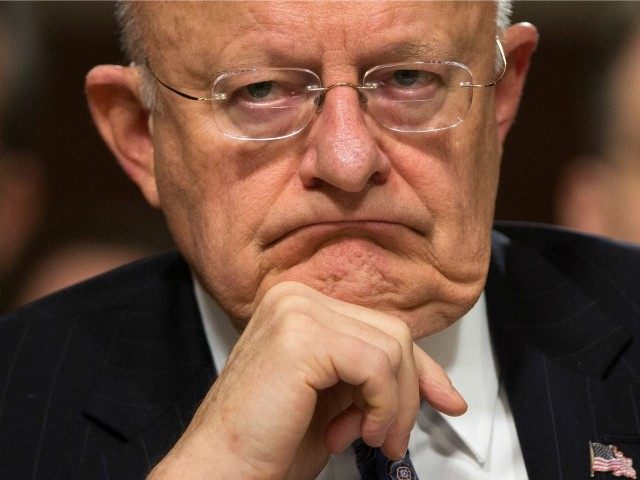Last summer brought a surprisingly short-lived scandal about the Obama administration cooking the books to make the president’s strategy against the Islamic State look far more successful than it actually was. Now there are whistleblowers charging that Director of National Intelligence James Clapper knew the Islamic State reports were excessively “optimistic.”
The Defense Department’s Inspector General is still investigating the allegations made public over the summer. The allegations against Clapper’s office are entirely separate, according to the Daily Beast:
This second set of accusations, which have not been previously reported, were made to the Office of the Director of National Intelligence (ODNI). They show that the officials charged with overseeing all U.S. intelligence activities were aware, through their own channels, of potential problems with the integrity of information on ISIS, some of which made its way to President Obama.
The analysts have said that they believe their reports were altered for political reasons, namely to adhere to Obama administration officials’ public statements that the U.S.-led campaign against ISIS is making progress and has put a dent in the group’s financing and operations.
Administration officials have denied that the intelligence reports came under political pressure. But Republican lawmakers and presidential candidates have questioned whether the public is being given an honest account of what effect hundreds of U.S. airstrikes have had on ISIS. The allegations of skewed intelligence have come up in several congressional hearings and figured in an early Republican presidential debate.
The Daily Beast notes that Clapper, in both public statements and Senate testimony, has insisted his office would never agree to “politicize intelligence,” and denounced the “media hyperbole” surrounding analysts’ complaints about skewed intel coming through the Defense Department, without ever mentioning that his own office was aware of such complaints.
In Clapper’s recent annual threat analysis to Congress, there is scarcely a threat on the horizon that he did not portray as growing much worse under Obama policy, from Iran to the Islamic State, without noting that administration intel painted a dramatically different picture in every case.
Congressional confidence in Clapper’s honesty is already dangerously low. If these whistleblower allegations against his office prove true, a crisis between the DNI and oversight committees is likely to erupt.
The allegations from analysts working for the Office of the Director of National Intelligence (ODNI) describe a widespread pattern of supervisors “editing or rejecting reports that cast doubt on whether the U.S.-led campaign against ISIS was dealing a crippling blow,” including the deletion of emails containing evidence to the contrary.
The story may not have caught fire with the public because news about the ongoing investigation petered out, as often happens with long-running probes, especially when much of what the investigators uncover is considered classified material.
Anti-Islamic State operations kicked into a much higher gear after the Paris terror attacks and Russia’s entry into the Syrian civil war. Highly effective airstrikes on Islamic State financial and oil infrastructure suddenly began producing results.
In the heat of a presidential campaign, the public’s attention span has wandered from memories of Islamic State expanding like wildfire — seizing town after town in Syria and Iraq as it hauled in thousands of recruits, while Islamic State-inspired terror attacks rocked the Western world — while the White House droned on about “degrading and ultimately destroying” them with an ineffectual, half-hearted air war.
The Daily Beast quotes inside sources talking about a “cancer” at the “senior level of the intelligence command,” and describing the skewing of Islamic State intel as a “Stalinist” propaganda campaign, while the pushback from angry analysts is portrayed as a “revolt.”
With even more intense battles against the Islamic State ahead, and both the Taliban and al-Qaeda resurgent under Obama foreign policy, good intelligence will be more vital than ever.

COMMENTS
Please let us know if you're having issues with commenting.